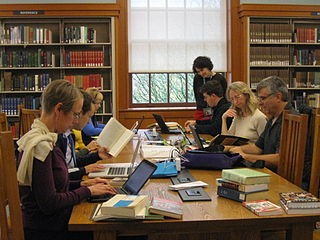Training Curriculum
This training curriculum will help you confidently begin to use, edit, and teach Wikipedia at your library. These materials were created during OCLC's Wikipedia + Libraries: Better Together project to strengthen ties between US public libraries and English-language Wikipedia. The project ran from December 2016 through May 2018 and was funded by the John S. and James L. Knight Foundation, the Wikimedia Foundation, and OCLC.
The materials are the product of research and expertise marshaled to design, deliver, and evaluate OCLC/WebJunction's nine-week Wikipedia online course for US public library staff. Participants learned to:
- build a deeper understanding of Wikipedia
- gain proficiency in evaluation and editing
- develop a plan to implement Wikipedia programming in their libraries
- amplify the role of libraries as information literacy leaders in their communities.
New to Wikipedia? No problem!
We’ve selected and curated materials to enable library trainers to effectively implement similar Wikipedia trainings for their library staff--even if you've never edited Wikipedia before. Use them to get started, and as you gain confidence with Wikipedia editing, use the materials to implement trainings at your own library.
Most participants did not know how to edit or confidently evaluate Wikipedia before taking this course. You will learn practical knowledge about understanding and using Wikipedia to better serve your library and community.
Here's what our participants say:
"This changed my perception of Wikipedia and the ways that libraries/librarians can and should incorporate it into our services to our patrons."
"I was one of 99% of users who think of Wikipedia as a less reliable source. I must say that this course was an eye opener… I am a changed librarian now. A librarian who feels the worth of Wikipedia, crowdsourcing, and contributing to the larger community."
Get started
Download all training materials as a .zip file, which includes the curriculum, course slides, handouts, and reading lists.
Download each part of the training materials separately.
Download the curriculum only (.docx file)
Download the PowerPoint slides
Download the handouts
Use and adapt the materials
You may use and adapt these course materials for free under the terms of Creative Commons Attribution-Share Alike 4.0 (CC BY-SA 4.0) licensing. When you do so, please credit WebJunction/OCLC and provide a link to the source materials; in addition, your adaptations should be shared under the same license agreement.
More about CC BY-SA 4.0.
Adapting our materials? Let's learn together!
If you plan to use the OCLC Wikipedia + Libraries training curriculum and related materials to run a Wikipedia training program or would like support in hosting a Wikipedia + Libraries course for your library staff, please reach out to us. We'd love to work with you to strengthen ties between libraries and Wikipedia. Please contact Dale Musselman at [email protected].
Most Recent News
It's a Wrap! Wikipedia + Libraries: Health and Medical Information Course
Publish Date: News / 26 November 2019
When Finger Lakes Library System librarian, Jenny Shonk, recently faced a personal health issue, she found herself turning to the convenience of Wikipedia for research. Shonk, who is the continuing education and outreach public librarian in Ithaca, N...
Training curriculum
Access the full training curriculum to learn how to confidently use, edit, and teach Wikipedia at your library.
Webinars
View webinars that explore the ways librarians are using and contributing to Wikipedia.
Learn more
Learn about the Wikipedia + Libraries: Better Together project's history and activities.
Sign up for Crossroads
Sign up to receive WebJunction's email newsletter for library learning, which may include future Wikipedia news.
Project funders
This project was made possible with funding from:




